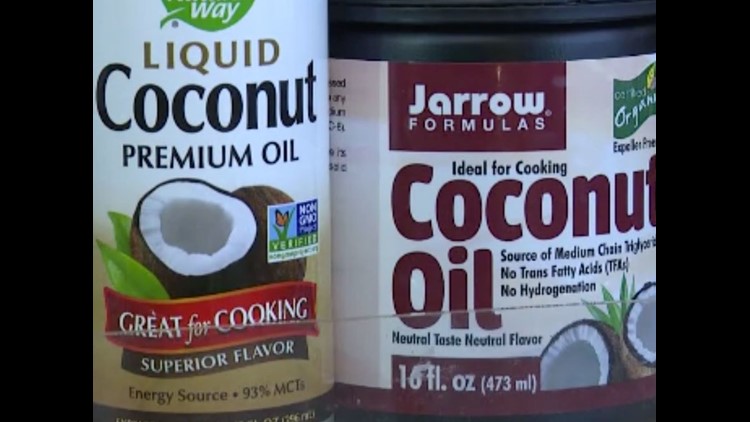HARTFORD — A recent survey reported that 72 percent of the American public rated coconut oil as a “healthy food” while nutritionists did not. In addition, many websites and some news reports are touting the health benefits of saturated fats in the diet. Is the era of butter, burgers, and bacon upon us?
I would love to tell you all that they are healthy but the American Heart Association’s guidance last week went through the evidence surrounding this area in detail and it is clear that the data suggests saturated fats are not healthy. Eating about half your calories as carbohydrates (starch and sugar), 25 percent as fat, and 25 percent as protein is part of a good general balanced diet but where should your fat calories come from?
Saturated fats are in abundance in beef and pork fat, butter, coconut oil and palm oil. Saturated fats increase low-density lipoproteins which is also known as bad cholesterol or LDL. Higher LDL levels are associated with more heart attacks and strokes and lowering LDL lowers the risk of these bad cardiovascular events from occurring. There are few things I can say with any more certainty than higher LDL levels increase the risk of heart attacks and strokes because studies of tens of thousands of people studied for long periods of time have proven this to be true. Coconut oil may be healthier than butter because the main saturated fat type is lauric acid which only raises LDL about half as much as the other saturated fat subtypes but it still elevates LDL.
The American Heart Association then assessed alternatives to saturated fats and what the evidence suggests about cardiovascular risk. You should not try to avoid all fats in your diet and replace them with refined carbohydrates like from bread or pasta. This is no healthier than having a balanced diet with saturated fats in the mix. You shouldn’t switch to trans fats like those found in margarine and partially hydrogenated vegetable oil; those fats are actually a little bit worse than just eating saturated fats.
What you should do is substitute oils or foods high in polyunsaturated fats like canola oil, corn oil, soybean oil, peanut oil, safflower oil, sunflower oil, and walnuts or monounsaturated oils including olive oil, avocados, and tree nuts such as almonds, cashews, hazelnuts, pistachios, and pecans. Using these monounsaturated and polyunsaturated fats can reduce your risk of cardiovascular disease by about 20 percent. Using these fats can also reduce your risk of neurologic and respiratory ailments versus using saturated fats as well. So extra virgin olive oil instead of butter, avocados and nuts to substitute for the fat lost with using low fat milk, and monounsaturated or polyunsaturated fats in salad dressings and for cooking.
– Dr. Michael White from the UConn School of Pharmacy



